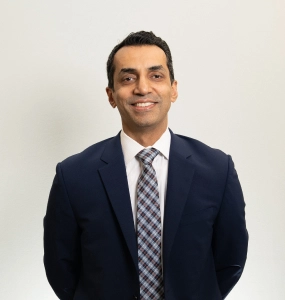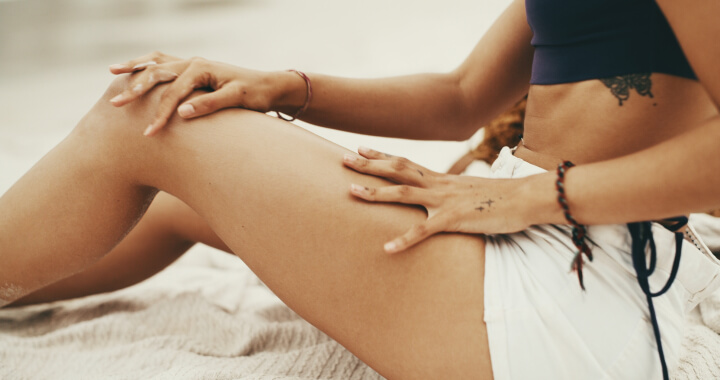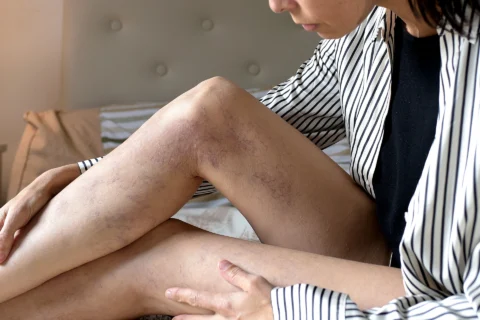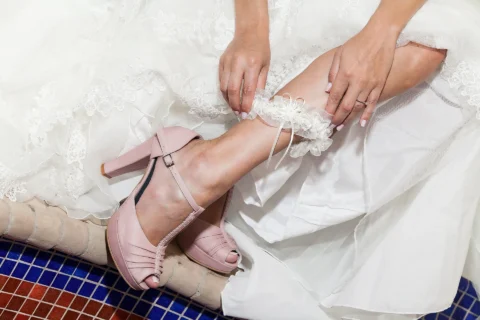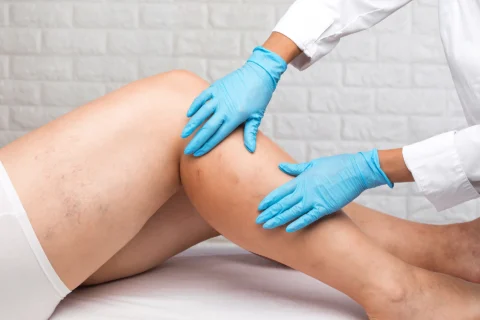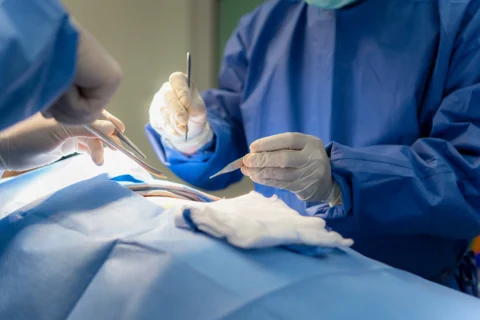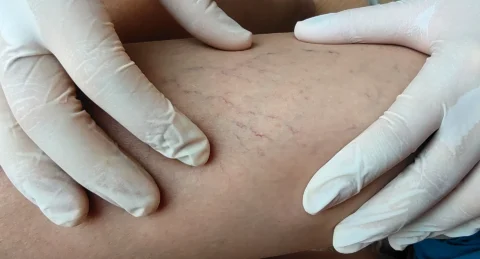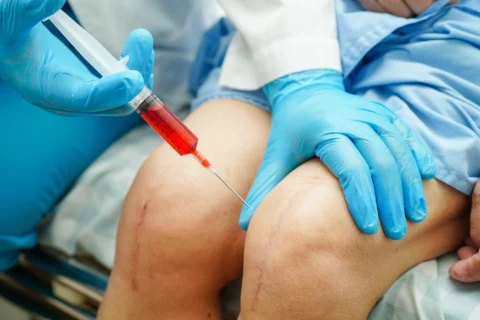Tattoos have evolved into an integral part of the culture. Women and men of all ages are exhibiting them as works of art and expressing their distinct personalities. Sometimes, tattoos are used to conceal a flaw on the body, such as a freckle, birthmark, scar, or even an unwanted tattoo because tattooing is a way to disguise the imperfections.
But is it possible to tattoo over varicose veins? Sadly, it’s not advised because getting a tattoo can result in potentially fatal and painful risks. Tattoo ink can spread if the tattoo needle penetrates a vein. It could cause the leg vein to protrude even more. While such incidents are rare, they’re not impossible. If this occurs, a patient may experience decreased function in the limb, such as discomfort or exhaustion.
Why Should Patients Never Get a Tattoo Over Varicose Veins?
Varicose veins, which are slightly similar to a spider vein, are twisted, swollen veins that can be seen through the skin. Varicose veins form when the one-way valves responsible for the correct blood flow fail.
It will cause the blood to pool and result in the vein walls to expand, twist, and deform. As a result, the vein walls are frequently displaced, delicate, and easily broken. They usually appear in the legs. These bluish veins indicate a more severe problem.
One type of blood clot is deep vein thrombosis. It typically forms in the upper or lower legs; it can disrupt the normal blood flow from the legs to the heart. Blood can pool in the legs as a result of these blood flow problems.
Tattoos can be dangerous even if the skin is free of varicose veins. It’s because there’s always a possibility of contracting an infection. When you tattoo varicose veins, the risks are multiplied.
For one thing, people might not get the desired result. The bulging vein can cause the tattoo to look distorted in unpredictable ways. Furthermore, getting a tattoo entails applying pressure to the skin while using a needle at higher frequencies.
It can cause the blood vessels to burst, bleed into the nearby tissue, and cause infections. A further reason to avoid tattooing over varicose veins is that they may be difficult to see. It may be an excellent way to conceal the vein. However, the vein specialist would have difficulty identifying the vein to diagnose and treat it appropriately.
Untreated varicose veins can cause severe health issues such as skin ulcers, poor blood flow, pain, skin discoloration, hemorrhaging, and more. As a result, it’s preferable to avoid tattooing and instead opt for varicose vein treatment. Tattooing over varicose veins makes it harder for vein experts to regulate vein treatment.
Read More: Can Varicose Veins Cause Blood Clots?
Potential Risks of Tattooing Varicose Veins
It may appear to be an obvious point, but tattoos can cause harm to the overall health if a varicose vein is punctured or damaged in the process. It might result in unexpected internal and external bleeding, affecting nearby organs.
Furthermore, when small varicose veins leak, they typically have trouble healing because they’re not healthy veins. Patients in such situations may need to go to a vein clinic, immediate care facility, or emergency department to have their ruptured veins sutured closed.
It could lead to elevated stress and have an impact on a patient’s general health and wellbeing. Finally, patients should think about treatment before getting a tattoo. There are numerous non-tattoo options for concealing unsightly varicose veins.
Many people prefer to wear compression stockings or Dermablend leg makeup with the same color as their skin tone. Topical solutions, such as vein cream or body makeup are also advisable.
There are a variety of creams and topical medications available at the local pharmacy that are reasonably priced. When experiencing irritations or complications, consult a doctor about a more formal medical treatment option.
A vein treatment expert explains that endovenous laser ablation is the most effective remedy when it comes to managing larger varicose veins around a tattooed area. Endovenous laser treatment has a very high rate of success with a lower risk of side effects when compared to other treatment options.
This minimally invasive method employs laser energy to seal the affected vein with scar tissue for a certain period to heal. Blood flow is rerouted through the healthier veins by this time. While all these alternatives are helpful to most patients, they may not be the most efficient in successfully treating existing vein disease.
A few minimally invasive venous treatments may be more effective for other patients. It includes light-guided sclerotherapy, endovenous radiofrequency treatment, and laser therapy. For people considering laser tattoo removal, laser surgery might be an option. The ink particles will be heated and broken up as a result of this tattoo removal procedure.
Based on the shades used in the tattoo, multiple lasers with different frequencies are used to remove the tattoo. The tattoo layers are addressed first. Once they have dried and faded, the surface below will be treated in subsequent visits as needed.
The doctor can treat the bottom layers of a tattoo after the upper layers have been cured. After every treatment, the tattoo site may experience swelling, bleeding, or blistering, to which a patient can apply antimicrobial cream to alleviate the response.
Read More: A Complete Guide to Your Non Surgical Varicose Vein Treatment
Discover the Proper Treatment for Varicose Veins at The Vein Center Doctor

The essential thing a patient can do is learn about the factors that cause, side effects, and treatment options for venous diseases such as spider veins and varicose veins. Our New York and New Jersey offices provide outpatient venous treatments and services. Our centers are fully equipped with diagnostic and treatment technologies, enabling you better access to full assistance for all vascular conditions. With our minimally invasive treatments, you can avoid seeing a surgeon.
For further details on tattooing and varicose veins, you can schedule a consultation with our certified vein specialists at The Vein Center Doctor today. We’re looking forward to serving you!
